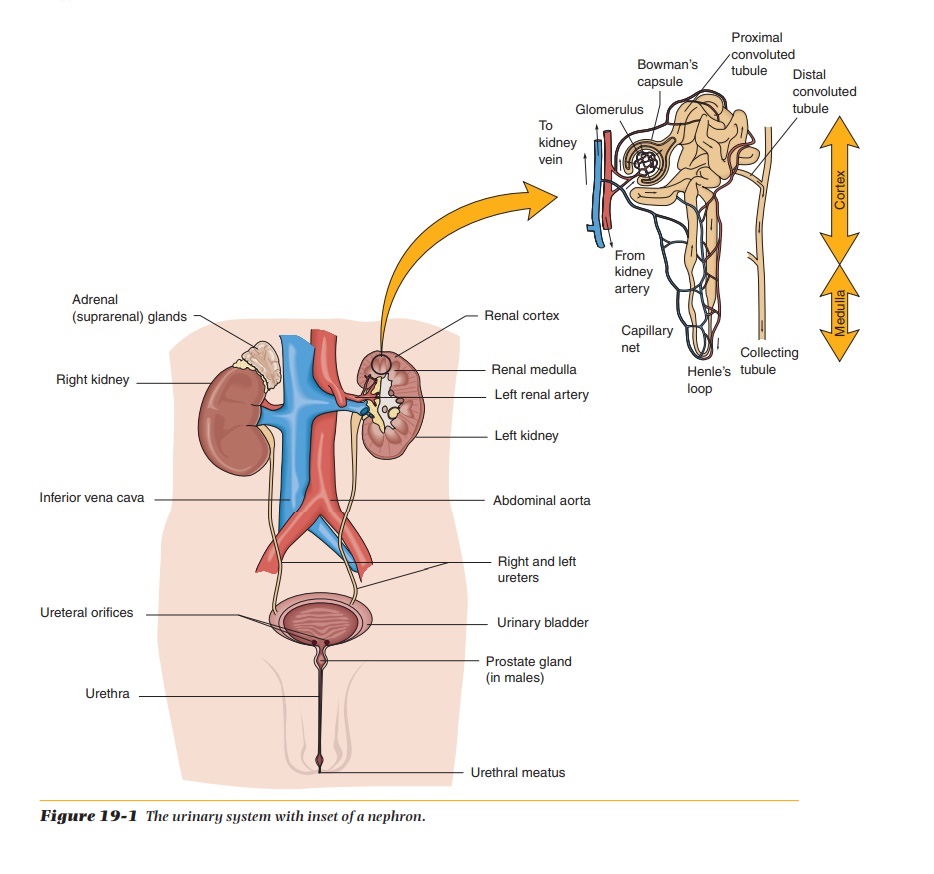Chapter: Nutrition and Diet Therapy: Diet and Renal Disease
Diet and Renal Disease
DIET AND RENAL DISEASE
The kidneys are
intricate and efficient processing systems that excrete wastes, maintain volume
and composition of body fluids, and secrete certain hormones. To accomplish
these tasks, they filter the blood, cleansing it of waste products, and recycle
other, usable, substances so that the necessary constituents of body fluids are
constantly available (Figure 19-1).
Each kidney contains
approximately 1 million working parts called nephrons.
Each nephron contains a filtering unit, called a glomerulus, inwhich there is a
cluster of specialized capillaries (tiny blood vessels connecting veins and
arteries). Approximately 180 liters of ultrafiltrate is processed each day. As
the filtrate passes through the nephrons, it is concentrated or diluted to meet
the body’s needs. In this way, the kidneys help maintain both the composition
and the volume of body fluids and, consequently, they maintain fluid balance,
acid-base balance, and electrolyte balance.

The liquid waste is
sent via two tubes called ureters from the kidneys to
the urinary bladder, from which they are excreted in approximately 1.5 liters
of urine per day. These waste materials include end products of protein
metabo-lism (urea, uric acid,
creatinine, ammonia, and sulfates), excess water and nutrients, dead renal
cells, and toxic substances. When the urinary output is less than 500 ml/day,
it is impossible for all the daily wastes to be eliminated. This condition is
called oliguria. When the kidneys are
unable to adequately eliminate nitrogenous waste (end products of protein
metabolism), renal failurecan result. The recycled materials are reabsorbed
(taken back) by the blood.
They include amino
acids, glucose, minerals, vitamins, and water.
The kidneys synthesize
and secrete certain hormones as needed. For example, it is the kidneys that
make the final conversion of vitamin D. Active vitamin D promotes the
absorption of calcium and the metabolism of calcium and phosphorus. The kidneys
indirectly stimulate bone marrow to reproduce red blood cells by producing the
hormone erythropoietin.
Related Topics